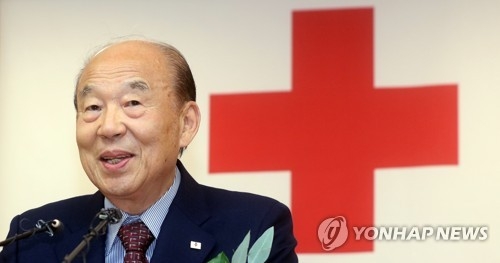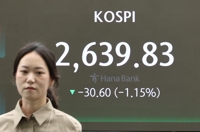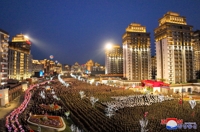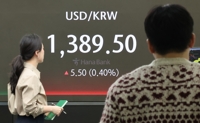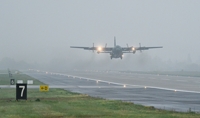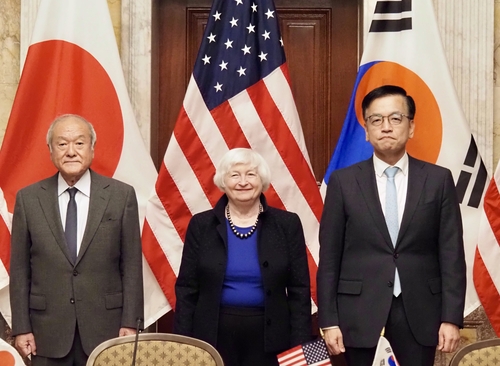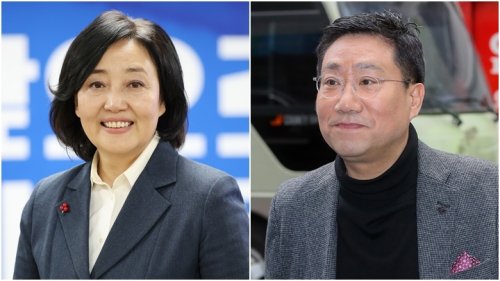(Yonhap Interview) Head of South Korea's Red Cross hopes to visit N.K. for family reunions, aid
By Kim Soo-yeon
SEOUL, Nov. 19 (Yonhap) -- The chief of South Korea's Red Cross said he hopes to visit the North to discuss ways to resume reunions of war-torn families and extend humanitarian aid, when frayed ties between the two countries improve.
Park Kyung-seo, new president of the Korean Red Cross, also said that he wants to give priority to healthcare in assistance to the impoverished country.
"When conditions are met, I would like to visit Pyongyang. I want to meet with my North Korean counterpart and others to discuss issues including reunions of separated families," Park, 78, said in an interview with Yonhap News Agency on Thursday.
The human rights expert took office on Aug. 18. At an inauguration ceremony, he voiced hope to have talks with the head of North Korea's Red Cross as soon as possible.
But inter-Korean relations have been long strained amid the North's nuclear and missile threats. It has kept mum toward Seoul's July offer to hold Red Cross talks to resume suspended reunions of families separated by the 1950-53 Korean War.
The issue of dispersed families is the most urgent humanitarian matter for the two Koreas, which still remain technically at war as the three-year conflict ended in a truce, not a peace treaty.
About 55 percent of an estimated 131,260 South Koreans on the waiting list for reunion have already died. Data showed that 62 percent of South Koreans hoping for the reunions are aged over 80. The last reunion event was held in October 2015.
Pyongyang has posed conditions that could politicize the issue. In exchange for the reunions, it is demanding Seoul return 12 female North Korean workers who worked at a restaurant in China and defected to South Korea en masse last year.
"The resumption of family reunions is urgent, but it is also a sensitive issue," Park said. "This issue involves the North Korean counterpart. I plan to handle it with a sense of duty and in a calm manner."
Park said that he prefers a two-track approach of providing humanitarian aid to North Korea -- first via international organizations and then through direct cooperative projects.
The Korean Red Cross has assisted the impoverished country through the International Federation of Red Cross and Red Crescent Societies (IFRC), an international humanitarian network.
In 2015, the agency contributed 378 million won (US$343,800) to the IFRC's pilot project for community-based development in the North. In 2016 and 2017, it offered a combined 330 million won to help the North cope with floods that hit its northeastern areas last year.
Park said that his agency set aside 400 million won to support the IFRC's project for this year, but it has yet to provide it amid tensions over North Korea's sixth nuclear test.
"When situations get better, I plan to send the money," he added.
Park expressed a desire to promote cooperation between the two Koreas' Red Cross societies.
"I believe that the two Koreas' Red Cross should jointly push for cooperative programs based on humanitarianism in a bid to bring genuine peace to the Korean Peninsula," he said.
Park cited the feeble healthcare sector in North Korea as a potential area for cooperation, given that North Korean children are suffering from malnutrition.
"I would like to focus on improving North Koreans' health and its healthcare system. That would be commensurate with the spirit of the Red Cross," he said.
"I hope to let North Koreans share our know-hows about running a blood bank and help them advance their healthcare system. In the long term, I want to push for community-based sustainable development programs for North Korea."
Park attended the general assembly of the IFRC in Turkey in early November. North Korea's Red Cross also sent its delegation including vice chief Paek Yong-ho to the meeting.
Park and Paek encountered each other at a lunch meeting among chiefs from the Red Cross in East Asia on the sidelines of the IFRC gathering, but there was no official meeting between them.
Paek told his Asian counterparts that North Korea is still struggling to fight damage from last year's floods, according to Park.
Park said that he hopes to further improve fairness and transparency in the operation of the Korean Red Cross.
"I wish to nurture the Korean Red Cross as an agency shared by all South Koreans. By strengthening fairness and transparency in running the agency, I would like to develop it into something like peers in advanced nations," Park stressed.
sooyeon@yna.co.kr
(END)
-
 Defense chief says N. Korea's hypersonic missile 'unsuccessful' in last-stage glide flight
Defense chief says N. Korea's hypersonic missile 'unsuccessful' in last-stage glide flight -
 N. Korea has capability to genetically engineer biological military products: U.S. report
N. Korea has capability to genetically engineer biological military products: U.S. report -
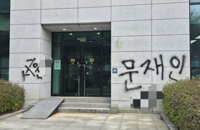 Man in his 40s nabbed for spray-painting slurs toward ex-President Moon
Man in his 40s nabbed for spray-painting slurs toward ex-President Moon -
 Police catch 1,681 over alleged election law violations
Police catch 1,681 over alleged election law violations -
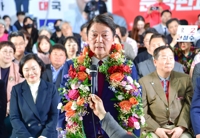 PPP lawmaker says entire Cabinet should resign over general elections defeat
PPP lawmaker says entire Cabinet should resign over general elections defeat
-
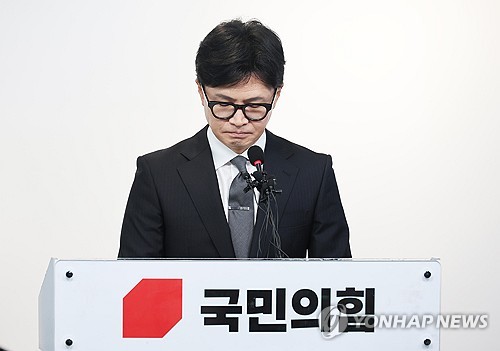 Ruling party leader resigns following election defeat
Ruling party leader resigns following election defeat -
 Defense chief says N. Korea's hypersonic missile 'unsuccessful' in last-stage glide flight
Defense chief says N. Korea's hypersonic missile 'unsuccessful' in last-stage glide flight -
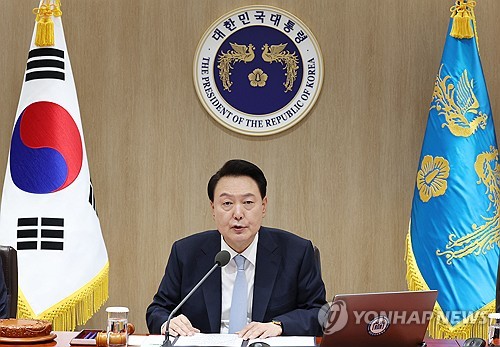 (LEAD) Yoon vows to improve communication with people after election defeat
(LEAD) Yoon vows to improve communication with people after election defeat -
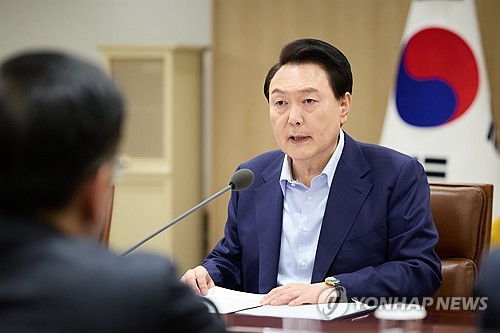 Yoon presides over emergency meeting on Mideast crisis
Yoon presides over emergency meeting on Mideast crisis -
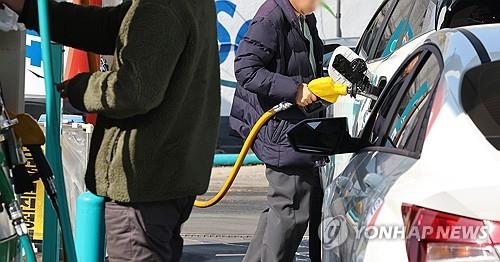 (LEAD) S. Korea to extend fuel tax cut through June amid Middle East tensions
(LEAD) S. Korea to extend fuel tax cut through June amid Middle East tensions
-
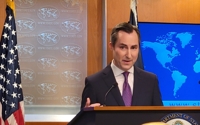 U.S. 'incredibly concerned' about suspected N.K.-Iran military ties
U.S. 'incredibly concerned' about suspected N.K.-Iran military ties -
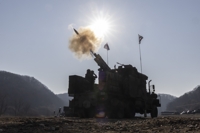 Army, Marine Corps conduct live-fire drills near border with N. Korea
Army, Marine Corps conduct live-fire drills near border with N. Korea -
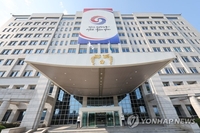 (LEAD) Presidential office denies Moon aides under consideration for PM, chief of staff
(LEAD) Presidential office denies Moon aides under consideration for PM, chief of staff -
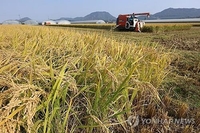 S. Korea to provide 100,000 tons of rice to 11 nations
S. Korea to provide 100,000 tons of rice to 11 nations -
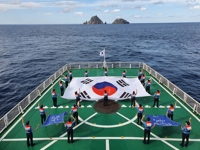 (2nd LD) S. Korea 'strongly' protests Tokyo's renewed claims to Dokdo, calls in Japanese diplomat
(2nd LD) S. Korea 'strongly' protests Tokyo's renewed claims to Dokdo, calls in Japanese diplomat
